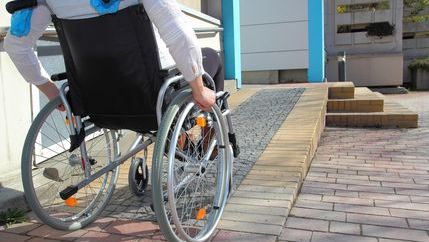
Futureproofing without unnecessary burdens
The proposals would require EV charge points in all new residential and non-residential buildings and those undergoing major renovations. These measures mirror regulations already in place in England.
Welcoming the ambition we highlighted key considerations. Instead of the suggested mandatory charge points in all new developments, cable routes to future-proof homes should be installed, which would allow consumers the choice to utilise them. Blanket requirements risk deterring developers, especially smaller builders and could introduce significant financial burdens on leasehold properties.
Exemptions for technological feasibility
Propertymark has previously recognised the diverse nature of Welsh housing stock and has suggested exemptions for listed buildings, conservation areas, and major renovations where costs exceed 7% of the project. Imposing high costs risks delaying developments and impacting the supply of much-needed homes.
Historic buildings often prove a challenge when installing EV infrastructure. In the consultation response, Propertymark supports exemptions for buildings where technological feasibility is an issue. Listed buildings, conservation areas, and properties with limited electrical capacity should be prioritised for exemptions, ensuring the policy remains flexible and practical.
Flexible Green Homes Wales Scheme doesn’t address support for landlords
The Welsh Government has launched a £70 million initiative to upgrade housing stock to support the country's drive towards achieving net-zero emissions by 2025. The Scheme will run until March 2025 and prioritises lower-income households, help tackle fuel poverty and improve living conditions while cutting energy bills.
The need for increased grant funding
In a separate letter to Baroness Taylor, Propertymark addressed challenges for existing homeowners and landlords and urged the UK Government to provide more support for retrofitting older homes.
We have repeatedly advocated for grant packages for EV infrastructure upgrades, particularly for homes with limited off-street parking, and suggested that Community charging schemes could provide a good solution for urban and terraced housing areas.
Heat network pilot program: a step forward
In 2021, the UK Government's Heat and Buildings Strategy outlined a commitment of £338 million for the Heat Network Transformation Programme to scale up low-carbon heat network deployment. Fast forward to 2024 and a pilot program is now rolled pilot program across Hull, Newcastle, Middlesbrough, Rochdale, and Stafford to start the reduction of reliance on traditional heating methods. It will see the zoning of areas where communal heating solutions would be most cost-effective, calling on data such as building type, size, and existing energy use.
Next steps
Propertymark understands the need for a balanced approach that supports the UK Government's goals without creating unnecessary barriers for developers or homeowners. The Welsh Government must prioritise infrastructure flexibility, provide targeted financial support for retrofitting older homes and work closely with the industry to create practical, achievable regulations.







